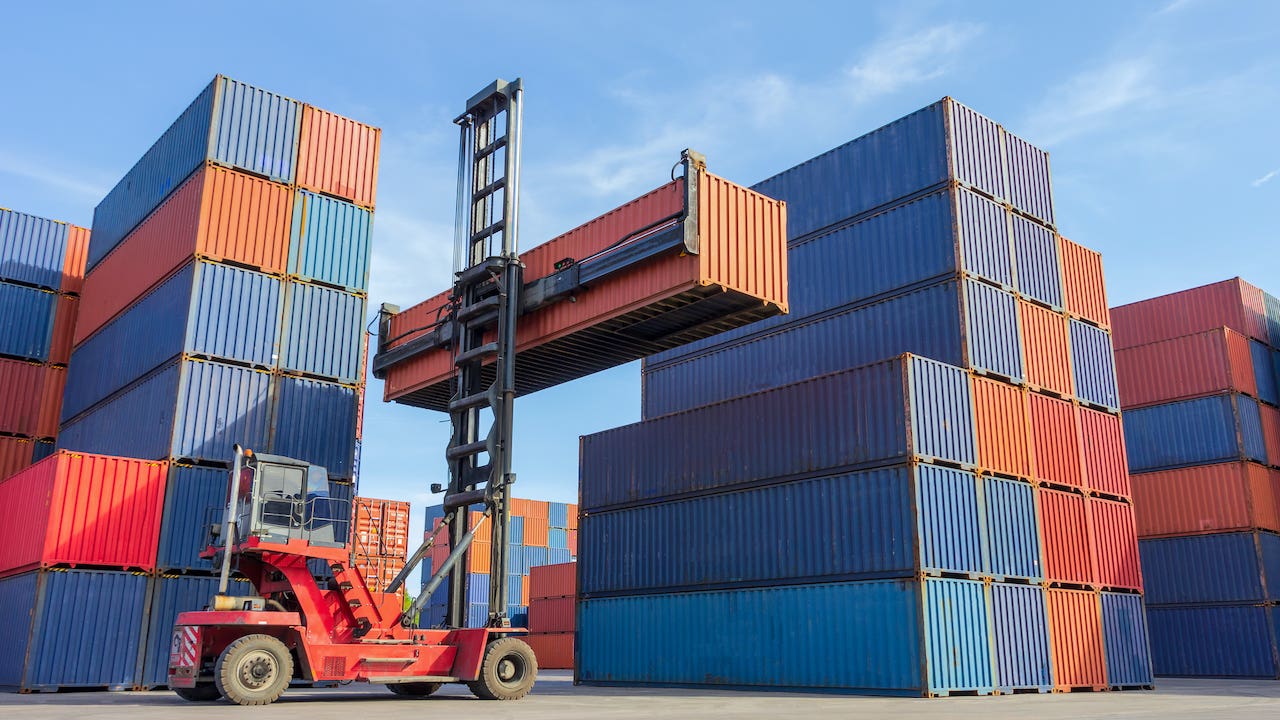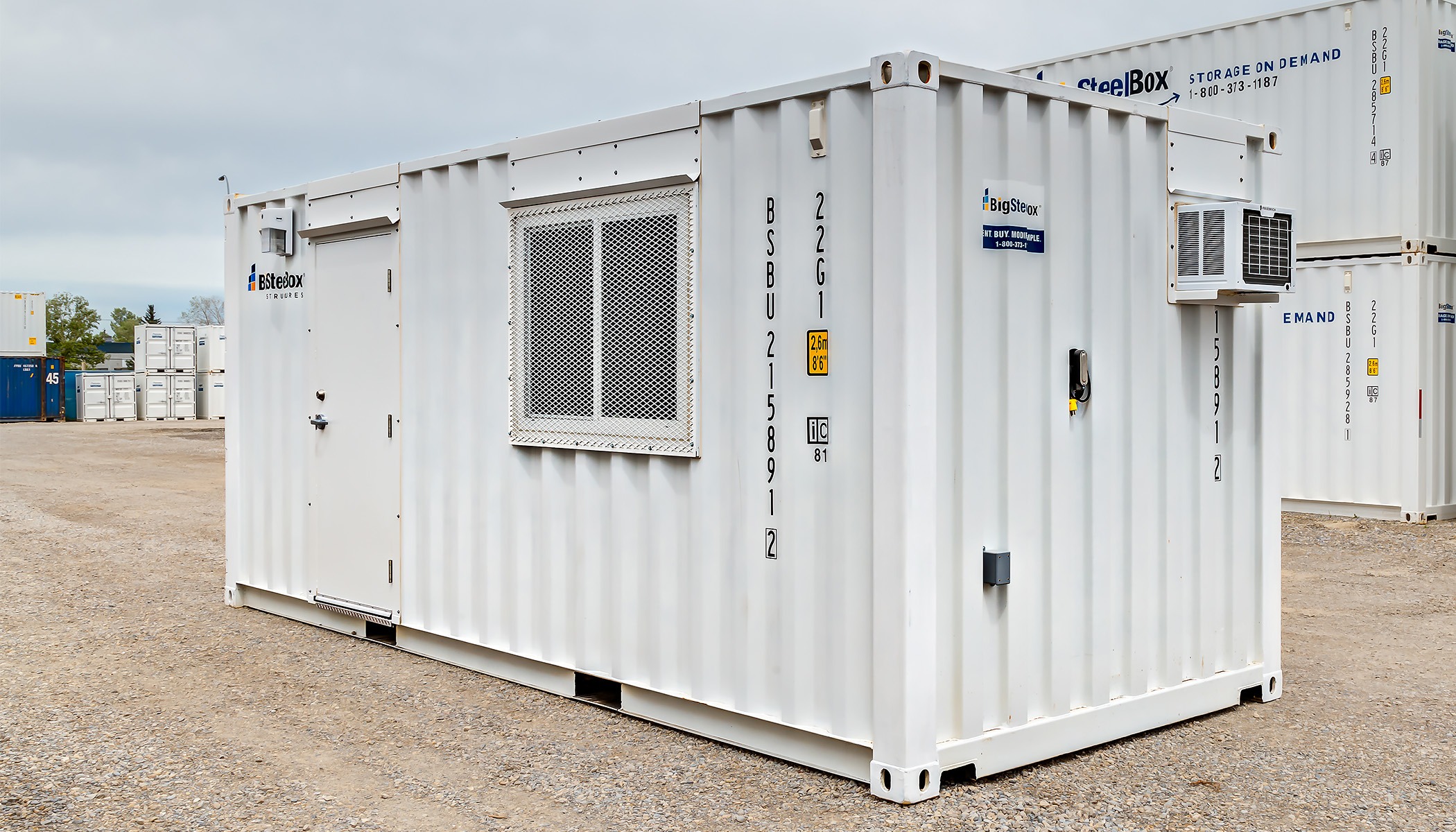Sea can for sale: How to choose before making a purchase
Every little thing You Required to Learn About Shipping Containers and Their Practical Applications
Shipping containers have advanced from plain devices for transport to versatile frameworks with many practical applications. Their robust layout and standard sizing make them perfect for a variety of usages beyond delivery. From ingenious real estate services to lasting farming, their versatility is notable. The possibilities do not finish there. Discovering their various features reveals unexpected understandings into innovative services and modern challenges. What various other roles could these containers play in today's world?
The Style and Structure of Shipping Containers

Internally, containers are developed to make the most of room, usually featuring wooden or steel floor covering that can sustain considerable weight. Ventilation systems might be incorporated to stop wetness accumulation, which is vital for sensitive cargo. Additionally, strengthened corners enable for simple handling by cranes and forklifts, facilitating smooth loading and dumping. This thoughtful style and structure add to the containers' adaptability throughout various delivery and storage applications.
Advantages of Utilizing Shipping Containers
While numerous transportation techniques have their advantages, the usage of delivery containers attracts attention as a result of their unparalleled adaptability and efficiency. Shipping containers use a standard size, making them very easy to pile and carry across numerous settings of transportation, consisting of ships, vehicles, and trains. This standardization lowers packing and dumping times, thus boosting overall productivity.
Moreover, shipping containers are constructed from durable products, supplying durable protection for products during transportation. They are weather-resistant and safe and secure, minimizing the risk of damages from ecological factors or theft. Additionally, the modular layout of shipping containers allows for simple modification, making it possible for services to adapt them for numerous purposes, such as storage space or mobile workplaces.
Their transportability and cost-effectiveness make delivery containers an appealing alternative for organizations looking to enhance logistics and supply chain procedures. These advantages contribute to the growing appeal of delivery containers in various sectors.
Creative Real Estate Solutions With Shipping Containers
Innovative housing remedies have actually arised as an amazing application of delivery containers, leveraging their fundamental strengths for household usage. These flexible structures offer a sustainable choice to standard structure products, frequently at a fraction of the price. Designers and engineers have actually transformed containers right into fashionable, practical homes, providing to diverse way of lives and choices.

Furthermore, delivering containers are eco friendly, advertising recycling and reducing waste. Lots of jobs concentrate on energy performance, integrating environment-friendly roofings and solar panels. As urbanization boosts, these ingenious housing remedies provide a useful response to housing shortages while cultivating an one-of-a-kind building visual.
Shipping Containers in Retail and Pop-Up Shops
An expanding variety of sellers are transforming to delivering containers as a dynamic remedy for pop-up stores and retail rooms. These flexible frameworks offer a cost-efficient option to typical shops, allowing services to create distinct, distinctive environments that bring in consumers. Their modular layout makes it possible for easy transport and setup, making them perfect for short-term or seasonal retail areas.
Stores can tailor shipping containers to reflect their brand identification, changing them into visually appealing stores that attract attention in jampacked markets. The portable nature of containers likewise urges their website effective use room, permitting for innovative layouts that maximize customer flow and engagement. Shipping containers can be located in unusual areas, browse this site such as uninhabited whole lots or metropolitan parks, raising accessibility and foot traffic.

As the retail landscape progresses, delivering containers supply a innovative and versatile option that fulfills the needs of modern-day customers while boosting the buying experience.
Sustainable Farming Practices Utilizing Shipping Containers
Lasting farming practices increasingly incorporate delivery containers as cutting-edge remedies for agriculture - shipping container storage. These container farms make use of hydroponics to optimize space and resource effectiveness, using an economical technique to food manufacturing. By transforming shipping containers right into farming hubs, farmers can address food security and ecological concerns at the same time
Container Farming Perks
While typical agriculture deals with challenges such as land shortage and environment change, container farming offers a viable option that makes best use of space and sources. This cutting-edge method enables year-round plant manufacturing in regulated settings, lowering reliance on weather conditions. Container farms utilize less water than traditional farming, advertising sustainability and conservation. They can be developed in city locations, bringing fresh produce closer to customers and reducing transportation exhausts. Furthermore, the modular nature of shipping containers makes it possible for scalability, allowing farmers to change procedures based on need. Container farming also decreases pesticide usage by creating an enclosed ecosystem, inevitably boosting food safety and security. As metropolitan populaces grow, container farming becomes a useful option to fulfill the boosting need for regional, lasting food resources.
Hydroponics in Containers
Hydroponics, which allows plants to expand without dirt by using nutrient-rich water, prospers within the boundaries of shipping containers, making it an ideal method for metropolitan farming. These containers create a regulated atmosphere that optimizes light, temperature, and moisture, enabling year-round farming. With minimal area in metropolitan locations, delivering containers use a scalable solution for expanding fresh produce. Hydroponic systems within containers can include different strategies, such as nutrient film strategy (NFT) and deep water culture (DWC), which take full advantage of return while minimizing water use. This ingenious strategy not only enhances food security yet likewise minimizes the carbon impact connected with traditional farming techniques. As a result, hydroponics in containers represents a forward-thinking option for sustainable urban food manufacturing.
Cost-efficient Farming Solutions
As food production faces boosting challenges as a result of environment change and urbanization, shipping containers arise as a cost-efficient remedy for agriculture. These functional frameworks can be repurposed for numerous sustainable farming methods, such as hydroponics and upright farming. By making use of controlled environments within containers, farmers can enhance growth cycles and lower source intake, consisting of water and plant foods. In addition, shipping containers can be purposefully positioned in metropolitan locations, reducing transportation expenses and boosting accessibility to fresh fruit and vegetables. Their modular nature permits scalability, allowing farmers to increase operations as demand expands. Repurposing containers contributes to lose decrease, aligning with eco-friendly farming campaigns. Overall, shipping containers present ingenious opportunities for lasting and efficient food manufacturing.
Emergency Situation and Calamity Relief Applications of Shipping Containers

Organizations regularly utilize delivery containers to develop mobile centers or field health centers, ensuring that medical treatment reaches those in requirement. Furthermore, they can be transformed into command facilities for collaborating rescue operations, consequently improving business effectiveness throughout situations.
Containers can be changed to save crucial products such as water, clothing, and food, guarding products up until they are distributed. Their movement enables them to be easily transported to numerous areas, guaranteeing that help arrives where it is most quickly required. In general, delivery containers play a critical function in improving the performance of calamity relief initiatives worldwide.
Frequently Asked Questions
How Are Shipping Containers Transported From One Area to An Additional?
Shipping containers are carried by means of ships, trains, and trucks, using cranes for discharging and packing. This multi-modal transport system makes certain effective motion throughout land and sea, linking worldwide supply chains and promoting international trade.
What Is the Average Lifespan of a Delivery Container?
The typical life-span of a shipping container typically varies from 10 to 25 years, relying on upkeep, usage, and ecological variables. Correct care can prolong their usability, while overlook may result in wear and tear and damages.
Can Shipping Containers Be Changed for Different Uses?
Yes, delivering containers can be customized for numerous uses. They offer as homes, workplaces, pop-up shops, and storage space devices. Their adaptability permits imaginative adaptations, making them appropriate for a variety of applications.
Are Shipping Containers Eco Friendly?
Shipping containers can be eco friendly, as they promote recycling and repurposing. Their longevity decreases waste, while their usage in alternate real estate and organizations decreases the need for new products, adding to lasting practices.
Exactly how Do I Choose the Right Size Shipping Container?
To select the best size shipping container, one should analyze storage space requirements, take into consideration the intended use, and assess area schedule - shipping containers for sale near me. Common sizes consist of 20-foot and 40-foot containers, each offering different storage and transport demands efficiently
Innovative real estate options have arised as an interesting application of delivery containers, leveraging their inherent strengths for household usage. The flexibility of delivery containers enables for imaginative formats, from single-unit houses to intricate multi-container plans. Lasting farming practices progressively integrate delivery containers as innovative solutions for agriculture. Additionally, the modular nature of delivery containers makes it possible for scalability, permitting farmers to change procedures based on demand. Hydroponics, which enables plants to expand without dirt by making use of nutrient-rich water, flourishes within the confines of shipping containers, making it an ideal method for metropolitan farming.